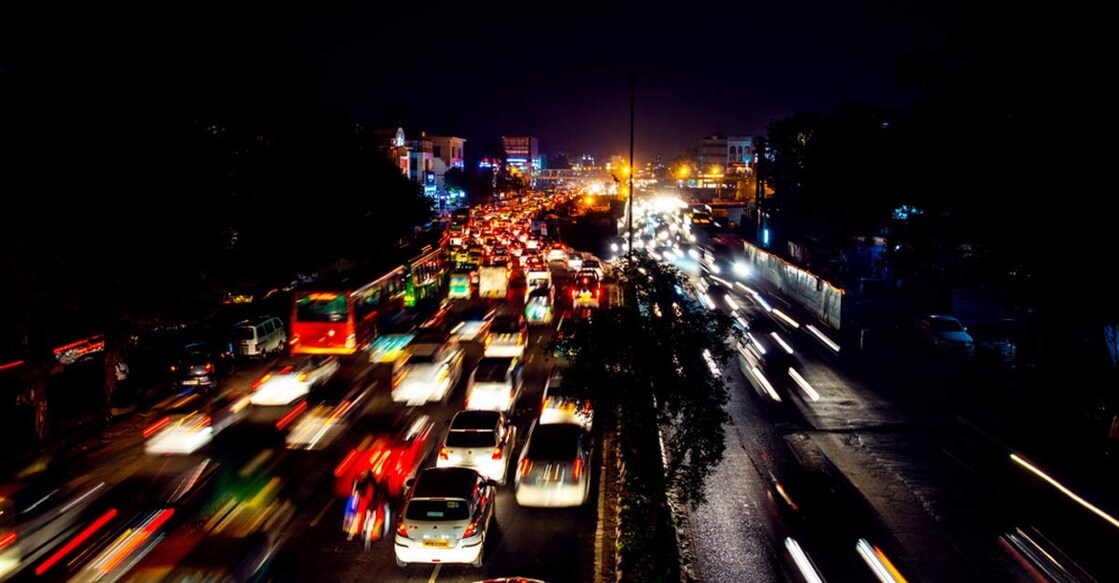Industry 4.0: A smart way to tackle rash driving habits

Mail This Article
Ensuring road safety is a nightmare for policy-makers and implementers.
In a report published in 2013, the World Health Organisation stated that India had a whining compliance rate of 2 on a scale of 10 in road safety, while the USA and UAE experience a compliance level of 9.
As per the data provided by the Ministry of Road Transport and Highways in 2019, at least 17 deaths occur in 51 road accidents every hour.
On November 30, 2017, the Supreme Court of India raised concern over the country's rising number of road accident cases. It directed the states to enforce measures for improving the driving habits of the citizens.
In 2013, the United Nations had warned that road traffic deaths are projected to be the fifth leading cause of death in the world unless policy-makers take immediate actions.
Accidents take a toll on a person’s physical, financial and emotional health. Those who fall prey to accidents take months to come back to life, and unfortunately for some, the struggle may last much more time.
Though the affected are recompensed through Motor Accidents Claims Tribunal (MACT) claims, the settlements take around six years or longer if the case happens to land in the Supreme Court.
The current regulations impose hefty liabilities on the insurance companies that vary according to the victim's age and earning capability. The rising number of accidents is positively correlated with the insurance premium paid by the vehicle owners.
Time to upgrade
Can there be a better solution to improve citizens' driving habits as well as reduce the burden of traffic abiding citizens by incentivizing them on their annual insurance premiums?
To curb the increasing traffic violations, firstly, the country's existing infrastructure needs to be upgraded to the concept of 'Industry 4.0 or I-4', more commonly known as the fourth industrial revolution.
I-4 involves a smart factory with real-time data exchange and decentralized decision-making through Big Data Analytics.
For example, as soon as an overspeeding vehicle gets tracked by the "smart cameras" incorporated with AI (Artificial Intelligence), it detects the vehicle number, speed, and other information and passes it to the traffic department as motor vehicle insurance companies.
Based on the seriousness of the crime, the insurance companies can attach weights to cluster the vehicle owners based on their driving habits using Big Data Analytics and charge higher insurance premiums to drivers who frequently break the laws. It also relieves the rule-abiding citizens from paying hefty insurance costs every year by passing on the burden to the original defaulters.
This concept can benefit multi-level stakeholders. For example, it can ease the data sharing with insurance companies to expose the uninsured vehicle details for necessary action at the policy level and reduce monitoring costs.
Additionally, the measure will significantly alter people's behaviour on the road and hence reduce the number of accidents.
This is important because even a 10% reduction in the number of deaths will lead to an addition of $31.55 million to our GDP (based on $2097.8 GDP per capita in 2019).
When savings due to reductions in fatal injuries are added, this figure will add up to more than five-fold. With efficient tracking of rash drivers, the motor vehicle department or insurance companies can introduce mandatory traffic training sessions for the defaulters at their own expense apart from charging a higher insurance premium.
Moreover, increased discipline on roads will labor healthy and sustainable habits like walking and cycling among the civil and reduce greenhouse gas emissions. It is therefore high time that policy-makers re-examined the system so that we can be more responsible drivers.
(Sidhartha S Padhi is an assistant professor and Shalique MS is a research scholar at the Indian Institute of Management, Kozhikode. Views are personal.)

